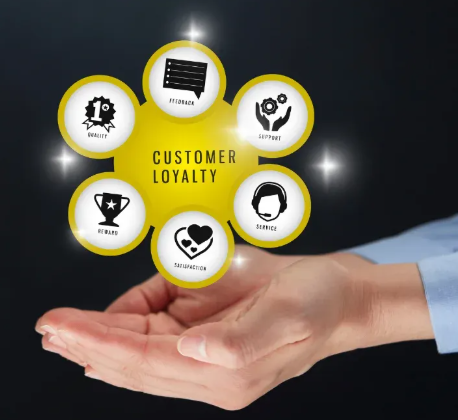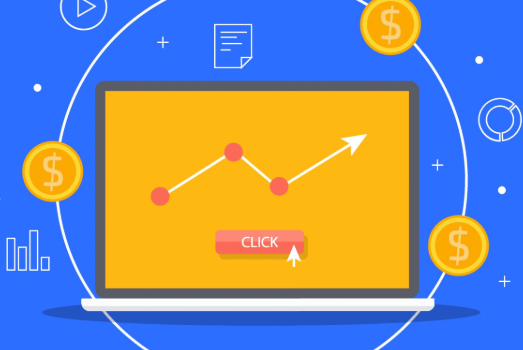
For B2B businesses, lead generation is crucial to drive sales and growth. However, deciding which strategy to use can be challenging, as both SEO (Search Engine Optimization) and PPC (Pay-Per-Click) advertising offer unique advantages. Each method has its strengths and weaknesses, and choosing the right one depends on your goals, budget, and target market. Let’s break down both strategies and explore when each is the better choice for your business.
The Advantages of SEO for B2B Lead Generation
SEO is a long-term investment focused on enhancing your website’s visibility and ranking on search engine results pages. By optimizing your content, website structure, and technical elements, you can attract leads who are already searching for products or services similar to what you offer. Here’s why SEO is a great tool for B2B lead generation:
- Cost Efficiency
Unlike PPC, SEO doesn’t require ongoing payments for clicks. Once you’ve invested in optimizing your website, you can continue to benefit from organic traffic without recurring costs. By targeting specific keywords that your potential customers are searching for, SEO ensures that your content reaches the right audience without wasting money on irrelevant clicks.
- Sustained Results
SEO provides a steady stream of leads over time. While PPC campaigns stop delivering results once the budget is spent, SEO efforts continue to pay off long after the initial investment. Optimizing for high-traffic keywords ensures that you consistently appear in search results, attracting high-quality leads without additional expenses.
- Establishes Trust and Authority
Ranked websites are perceived as more credible and trustworthy by users. SEO helps you build authority by positioning your business as an expert in your field. When potential customers find your website through organic search results, they’re more likely to trust your content and engage with your business compared to ads, which can sometimes be seen as less authentic.
Challenges of SEO for B2B Lead Generation
- Time-Consuming
SEO is a long-term strategy, and results take time. Typically, it may take several months before you start seeing significant increases in qualified leads. During this time, ongoing effort is needed to update content, optimize your website, and improve your site’s performance. This patience can be difficult for businesses looking for quicker results.
- Requires Specialized Knowledge
SEO involves understanding complex algorithms, keyword research, and the technical aspects of website optimization. To achieve success, you need in-depth knowledge of how search engines rank pages and how to create content that aligns with these guidelines. Moreover, staying updated with SEO trends is necessary to maintain and improve rankings.
- Continuous Effort
SEO isn’t a set-and-forget strategy. To remain effective, it requires continuous effort, including regular content updates, technical optimizations, and responsiveness to search engine algorithm changes. Without ongoing adjustments, your rankings can decline, leading to fewer leads over time.
The Benefits of PPC for B2B Lead Generation
PPC involves paying for ads that appear on search engines like Google. Each time someone clicks on your ad, you pay the platform a fee. This method allows you to target specific keywords and demographics, ensuring that your ads reach the right audience. Here are some benefits of using PPC for B2B lead generation:
- Quick Results
One of the main advantages of PPC is its immediacy. Once your ads are live, you can start generating leads right away. This is particularly useful if you have a time-sensitive product launch or a new offer. You can quickly reach a large audience and start seeing results within hours.
- Precise Targeting
With PPC, you can refine your targeting by selecting specific keywords, geographic locations, industries, or even job titles. This means your ads are shown to people who are actively searching for services or products like yours. For example, a B2B software company could target keywords such as “enterprise resource planning software” or “CRM solutions for small businesses.”
- Adaptable and Flexible
PPC campaigns allow you to adjust your strategy based on performance. If certain keywords or ads aren’t generating the desired results, you can easily modify or pause them without affecting your overall campaign. This flexibility lets you optimize campaigns for maximum lead generation.
Drawbacks of PPC for B2B Lead Generation
- Ongoing Expenses
While SEO can provide long-lasting results, PPC requires ongoing investment. Each click on your ad costs money, and to maintain visibility, you need to keep paying for ads. This can quickly become expensive, especially in competitive industries where the cost-per-click is high.
- Click Fraud Risk
Click fraud occurs when competitors or bots click on your ads to drain your budget without generating legitimate leads. This can lead to wasted resources and a lower return on investment. Although click fraud detection tools can help, it remains a concern that could impact the effectiveness of your PPC campaigns.
- Limited Reach
Although PPC allows for targeted advertising, it can still be limiting. For instance, relying on broad keywords may attract irrelevant clicks, which leads to wasted budget. High bounce rates from users who didn’t find what they expected can also hurt your ad’s performance.
When Should You Use SEO for B2B Lead Generation?
- When You Have an Established Brand
SEO is highly effective for businesses with an established reputation. When your brand already has recognition, leveraging SEO to boost organic visibility can drive high-quality leads. This approach works well for businesses aiming to maintain long-term visibility and build relationships with potential customers over time.
- For Long-Term Results
SEO is a great choice if you’re looking for sustainable growth. It’s an ongoing strategy that, once set in motion, can provide a continuous flow of leads without the need for ongoing ad spend. This makes it ideal for businesses looking to generate leads over the long haul without a constant marketing budget.
- When You Prioritize High-Quality Leads
SEO helps you attract leads that are genuinely interested in what you offer. These leads are more likely to be high-quality prospects who are actively searching for solutions to their needs. SEO allows you to create content that speaks directly to these potential customers’ pain points, increasing the likelihood of conversion.
When Should You Use PPC for B2B Lead Generation?
- For Specific Geographic Targeting
PPC is ideal if your business targets specific regions or cities. Unlike SEO, which tends to be broader, PPC allows you to hone in on exact locations, making it effective for businesses catering to particular areas, such as local service providers or businesses with a regional focus.
- When You Have a Complex Product or Service
If your product or service requires a deep understanding, PPC can be beneficial. By using targeted ads, you can reach customers who are already looking for solutions similar to yours, and you can control the messaging to ensure clarity. This is especially important for technical or complex products that need detailed explanations.
- For Shorter Sales Cycles
In businesses with shorter sales cycles, PPC can provide quick results by reaching prospects at the right time. It allows you to adapt your messaging and targeting quickly, ensuring that you don’t lose potential customers who might be ready to convert right away.
Conclusion
Both SEO and PPC offer unique benefits for B2B lead generation, but the right choice depends on your business objectives and resources. SEO provides long-term, cost-effective results and helps build trust and credibility, while PPC offers immediate visibility and precise targeting. By evaluating your company’s goals, sales cycle, and budget, you can decide which strategy—or combination of both—will best meet your lead generation needs.












